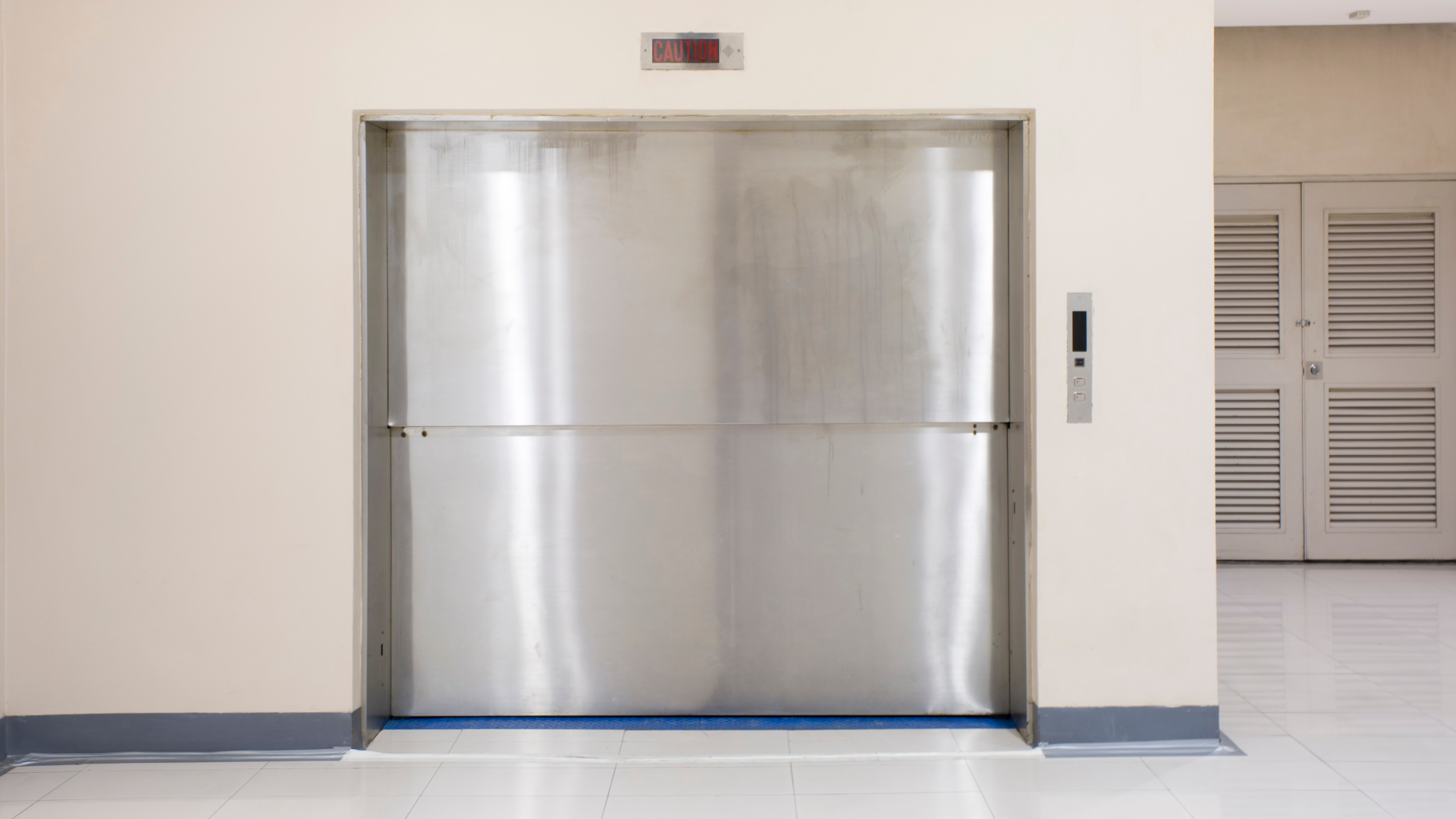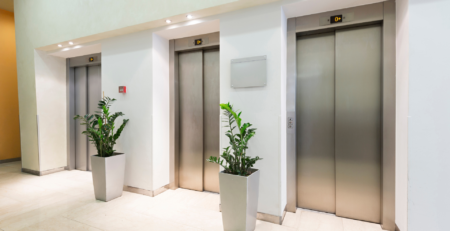Reducing Freight Elevator Downtime: Maintenance Best Practices
Did you know that a dumbwaiter is technically a freight elevator? A freight elevator’s purpose is specifically to lift items or goods. Dumbwaiters count because they transport cutlery, plates, and cups-or small freight items.
Freight lifts help accomplish your literal heavy lifting. But do you know what’s involved with freight elevator maintenance? For example, swapping out old parts is essential to keeping a lift functioning.
Proper upkeep and upgrades help improve freight elevator efficiency. It’s crucial to understand what maintenance involves and why it’s needed. We’ll tell you about the proper ways to help maintain your freight elevator.
Freight Elevator Maintenance Types
Freight elevator safety depends on how well you maintain the lift. If nothing works well, there’s a good chance you can damage goods or, worse, hurt yourself and others.
There are different maintenance types you should observe so your lift keeps working:
- Basic maintenance
- Includes daily and weekly (or monthly) upkeep
- Intermediate maintenance
- Third level maintenance
- Seasonal maintenance
Basic Maintenance
The first kind of lift care we’ll discuss is daily basic maintenance. This kind of upkeep works like a checklist. You look in on things every day so the freight elevator stays working.
Daily basic maintenance includes cleaning underneath, around, and inside the elevator. Checking on the buttons is also a day-to-day necessity.
Specifically, you’re checking to see if they stick or if anything was wedged in the crevices between the button and the control panel. Try to avoid chemical cleaners as they could seep into the panel.
You may cause internal corrosion and damage the elevator controls. Door checks are a must. You’re not transporting anything with the doors stuck together.
Tacky paint could be the cause of sticky doors. Removing the old paint and carefully reapplying a new coat can go a long way toward solving the issue.
Workers need good lighting to load freight. Look for burned-out bulbs, button lights, and indicators inside the elevator. On-site personnel can replace dead lights as part of basic maintenance.
Daily freight elevator inspections should ensure no vandalism occurs. Lifts of all kinds are unfortunate targets for defacement. Keeping the elevator room clear of stored items is significant because they could be fire hazards.
The elevator room is where all the working machinery, like the engine, would be. The hydraulic oil is highly flammable. It’s best to reduce the chances of combustion as much as possible.
Non-Daily Basic Maintenance
Inspecting and cleaning the air, oil, and fuel filters is necessary. Clogged filters can inhibit proper operation. Clogged air filters restrict airflow and filter in debris and particles.
Blocked oil and fuel filters affect engine performance. You may hear stalling or feel the elevator struggle to operate. Cleaning the filters each day isn’t required, but daily inspection is essential.
Tightening bolts and lubricating gears likewise keep things running. Again, you may not need to do this daily, but creating a regular schedule for this upkeep will be helpful.
Replacing minor lift components and freight elevator upgrades is part of basic upkeep. This upkeep is a round-the-clock job. The daily portions must be done before, during, and after each shift.
Filter cleaning, tightening bolts, and lubricating can be weekly or monthly tasks.
Intermediate Maintenance
Technicians perform intermediate or secondary maintenance on removed parts, equipment, or components. The mechanical operator (an onsite worker) takes care of basic freight elevator care.
However, trusted third-party shops, centers, and field teams test, calibrate, inspect, and replace damaged parts for intermediate maintenance.
In other words, don’t try this kind of maintenance yourself. You likely don’t have the experience or skills required.
Freight elevator upgrades are also secondary upkeep. The goal is to improve freight elevator efficiency and safety. Intermediate maintenance is key to your lift lasting as long as possible.
Third Level Maintenance
Third or depot-level maintenance is when expert personnel care for freight elevator equipment. These experts use specialized tools to work and examine pieces attached to or removed from the lift.
Third-level maintenance works a lot like secondary elevator upkeep. Here is what the work involves:
- Testing machinery
- Inspection
- Calibration
- Repair work
- Refurbishing
- Replacing parts
Upgrading and modernizing lifts falls within third-level maintenance as well. The difference is that depot-level upkeep handles issues beyond what the organization or third-party companies can manage.
Seasonal Maintenance
This kind of maintenance is essential to freight elevator safety and operation. Seasonal maintenance happens before summer or winter. This is so seasonal complications don’t harm the lift components.
For example, high and low temperatures can damage internal lift machinery. Too much heat can deteriorate insulation and may lead to engine breakdown. Cold weather decreases fuel efficiency and makes your engine work harder.
Weather that’s too warm or too cool negatively affects lubricant and hydraulic oil. Winter weather can reduce lubricant viscosity and reduce machine part movement.
Hydraulic oil does work in high temperatures, but there is such a thing as too hot. Extra heat can damage engine parts because of erratic aeration.
Erratic aeration usually happens when air gets sucked into a piece of machinery. You’ll hear it as a whining noise combined with rattling.
Why Is Freight Elevator Downtime Bad?
Downtime is when your machinery is inoperable. Broken lift components keep your elevator from running. Certain goods may be difficult, if not impossible, to move without the hydraulic lift’s assistance.
An inability to move freight can bring business operations to a standstill. You can’t do your job if the materials for it don’t work. The longer you go without moving freight, the less revenue the company gets.
Downtime is a cumulative cause and effect. When one thing goes, it affects everything. That’s why you must keep up with maintenance procedures regardless.
How You Can Avoid Freight Elevator Downtime
Adhering to freight elevator upkeep practices is the best way to avoid downtime. If everything is consistently cared for, you have fewer chances of something breaking down.
Follow your daily checklist, lubricate gears, and perform seasonal maintenance. Or, you can trust Toledo Elevator to help you with your lift. We do freight elevator upgrades, vandalism repair, and complex repair work.
Our technicians are on call 24/7, year-round. Contact us to handle your repair and elevator servicing needs today.

Sammy Assaf leads Toledo Elevator, setting the bar high in the elevator service industry with innovative solutions and unmatched customer service. Sammy’s extensive knowledge of elevator systems, combined with a dedication to safety and efficiency, ensures Toledo Elevator offers comprehensive services that meet the modern demands of building management. The company prides itself on advancing elevator technology and maintenance, providing valuable insights into the latest trends and safety standards to keep elevators running smoothly and safely.






